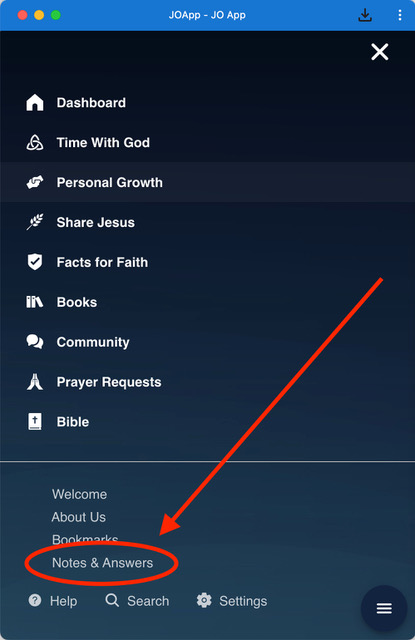When you are in the Bible section of the JO App, you can highlight Bible passages and make notes.
When you highlight a verse (by selecting a verse number), six different highlight colors will appear at the bottom of the Bible page. The first five colors coincide with the five following questions of the R.E.C.A.P. Bible study method used in this app.
In this method, you ask yourself the following questions as you read a section of the Bible:
R — Is there revelation about God that I should embrace?
E — Is there an example I should follow or avoid?
C — Is there a command I should obey?
A — Is there something I need to apply to my life?
P — Is there a promise I should claim?
Not all five questions will apply to every given passage. Find one question that applies to the passage you are reading and then select the corresponding highlight color. If none of the R.E.C.A.P. colors seem to apply, you can use the yellow highlight color.
As you highlight a passage, you will also have the option to add a note.
You can access all of your highlighted passages and notes by tapping the gear icon in the upper right part of any Bible page.


